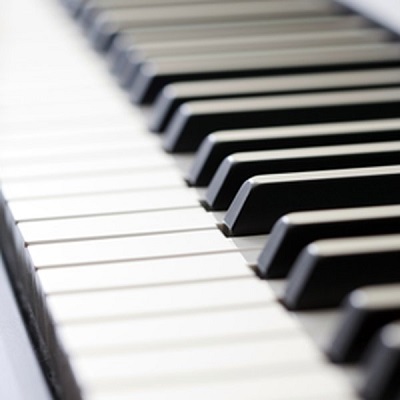Most of us have a very limited vocal range. The average human singing voice encompasses just three octaves, where an octave spans eight ascending musical notes in such a way that the last note is twice the frequency of the first. Sometimes well trained singers can push the boundaries further. It is said that a young Mariah Carey had a range that could cross five octaves. Guns ‘n’ Roses frontman Axl Rose is reported to be able to hit notes spanning nearly six, plunging deeper than Barry White and rising higher than Carey or Beyoncé. That means he can sing nearly any note on a standard piano, where 88 keys cover just over seven full octaves. However, the record for the greatest human vocal range is currently held by American Tim Storms. With vocal cords twice as long as the average, he can sing across a staggering ten octaves.
There are some singers who can reach notes more extreme than any on a piano keyboard. A piano’s highest note is known as C8 and has a frequency of 4816 Hertz. But in June 2005, live on television, Australian Adam Lopez managed to hit a 4435 Hertz note, giving him the World Record for the highest note ever produced by a male. The record for a female is still disputed. However, this is still a long way short of eclipsing the limits of human hearing. The average adult can hear sounds with frequencies up to 14,000 Hertz. Young people can hear noises even higher. There is a sound with a frequency of 17,400 Hertz – known as The Mosquito – which is used to prevent youths loitering in public spaces.
The other end of the spectrum is dominated by Tim Storms, who also holds the record for the lowest note ever sung by a human. At a rumbling 0.189 Hz, you would need to press the leftmost key on an additional piano keyboard placed to left of the first. Such a note is inaudible to the human ear and is even lower than the lowest recorded sounds made by whales and elephants. So Tim himself cannot hear it, but he can feel the vibrations it makes in his body. Scientists refer to such noises as infrasound (as opposed to ultrasound, often used in medical imaging, which denotes sound above the threshold of human hearing).
Yet astronomers have uncovered a note which completely trumps anything on Earth. Fitting, as there are 88 constellations to go with the 88 keys on a piano keyboard. It is in the direction of one of those constellations – Perseus – that you would find the Perseus galaxy cluster. Here thousands of galaxies live side by side, surrounded by gas that can reach temperatures of more than a million degrees. In 2003, astronomers using the Chandra X-ray telescope found something remarkable about one of the black holes hidden in the cluster: it was emitting a staggeringly low note. So low that it sits 57 octaves below a piano’s Middle C. With an octave covering 16.5 centimetres on a standard piano, you’d have to extend the left end of your instrument by more than nine metres in order to play it. The sound wave is able to propagate outwards through the surrounding gas.
The record was beaten in 2006 by a similar sound picked up in the Virgo cluster of galaxies. The sound is linked to eruptions from a black hole and can vary between 56 and 59 octaves lower than middle C. So with a standard piano stretching to just under 1.5 metres, you would need a piano with a total length of around 11 metres in order to match the note.
Like this article? Sign up to my weekly astronomy newsletter to get cutting-edge space stories straight to your inbox every Monday. You’ll also get an exclusive FREE E-BOOK.
Sign up
Email Address (required)
